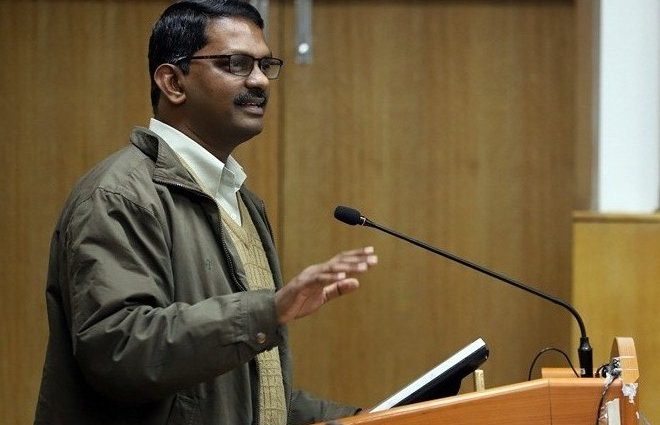TLI Interview
Finance Minister Nirmala Sitharaman would present the much-awaited Union Budget 2021 in Parliament on February 1. There are high hopes from the Budget given that she has herself promised a ‘never before’ Budget. Top Lead India’s Nirbhay Kumar spoke to NR Bhanumurthy, a leading economist and Vice-chancellor of Bengaluru-based B.R. Ambedkar School of Economics on Budget expectations. Edited excerpts:
Q. There are a lot of expectations from Budget given the need for support by most sectors in the wake of pandemic. What is your expectation given that government needs to spend a lot but its finances are already under stress?
Budget is anyways very challenging exercise. This time it is much more challenging due to pandemic. This year the GDP growth is expected to be negative and next year also situation will not be very comfortable. Some of the activities are still restricted. There is not much of fiscal space available. But my view is that Finance Minister needs to focus on any policy measures that can help in reviving the economy and also give push to employment generation. I think the government needs to spend more money on any sector which has larger employment intensity.
Unfortunately, there are many sectors where there is no assessment of what is the employment intensity. Wherever possible resources may be allocated to ensure employment opportunity is increased. For example, rural infrastructure programme whether it is housing, electricity or roads, all these will have positive impact on employment.
Q. What are the sources available which could be tapped by the government to increase its revenue?
The only way is to spend in areas where economic activities will revive sharply. Revenue is a function of GDP growth. If you have policy measures that will improve GDP growth, revenues will automatically come. There are only two policy measures — expenditure and taxes. You are borrowing and spending so that economic activities increase and you reap tax revenues.
Q. Pandemic has amplified the need for strengthening health infrastructure and create new ones. Do you think Budget will substantially raise the resources for health sector? Infrastructure is another area which needs more focus.
Health related infrastructure spending has to be there. Basically, health and infrastructure become crucial sectors in the coming Budget. But more than anything, the post-pandemic situation gives the government an opportunity to start with a clean slate.
As regards financial year 2020-21, whether it is fiscal or GDP, market has discounted it because it has been an unusual year. When it comes to FY21-22, it gives great opportunity for the government to come clean on all the aspects. At the same time, it should focus on medium term.
Budgets are always limited to annual financial statement of that particular year but I think when policies are made the Budget should focus on medium term strategy. Thankfully, report of the 15th Finance Commission will be part and parcel of the Budget and we know that the Commission largely focuses on medium term, so integrating it and at the same time bringing back the strategy of $5 trillion economy would be a part of the Budget.
Q. Some of the sectors like hospitality, tourism and aviation have been most affected from pandemic. Do you see a case for support for them?
Manufacturing sector got relief in terms of production-linked incentive (PLI) under Atmanirbhar Bharat (self-reliant India). MSMEs and agriculture sector also received support in terms of additional credit. Service sector is a job-intensive sector so it also needs a helping hand. In medium term all these sectors would be much more vibrant. It will help put the whole recovery process on track.
Q. There has been apprehension in a section of industry that import duty on various items could be raised. There has been voices against it. Do you support the idea of raising import tariff?
Absolutely not. There seems to be some difference of opinion over what helps to revive the export sector in the country. By putting import tariff you are going to actually disturb the domestic competitiveness. You might end up with a higher cost of production which in turn will have its impact on export competitiveness.
In India, particularly in manufacturing sector, it is the import-led exports growth hypothesis that works. So, people who are pushing for this tariff think that there is no relation between import and exports which is not correct. Many domestic manufacturers may be happy with increase in import tariff because they think that government is protecting them from external competition. But that is only for a short-term. It will actually hamper domestic industry’s productivity as well as competitiveness in the international market.
Image courtesy: Twitter/PRS Legislative

